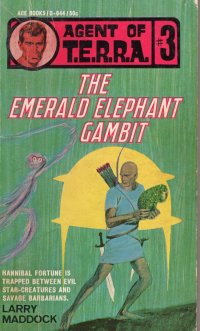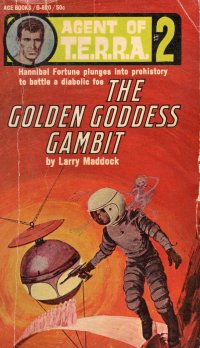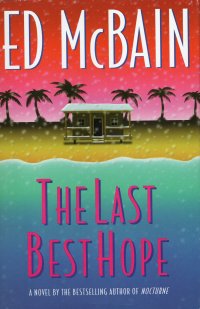I’d circled this day on my calendar. Well, not really. Although I do still have a wall calendar upon which very little is written, I didn’t circle this day. But I had looked up when Rublecon was this year, and I remembered; and after celebrating my oldest son’s 18th birthday at the Red Lobster, I drove the back streets to see if the Senior Center up on Fremont was having its garage sale. And it was also today, so I was able to remember both because I planned to go to both. I can’t remember the last time I made it to the Senior Center’s garage sale–it might have only been once a decade or more ago–but I know I was at Rublecon in 2022.
So I did. And I spent a lot of money, relatively. Mostly at the con of course.

At the garage sale, I got a couple DVDs for a buck:
- The Alamo with John Wayne
- Three Tarzan movies: Tarzan the Fearless, Tarzan and the Trappers, and Tarzan and the Green Goddess. They’re actually serials from the 30s with Herman Brix as Tarzan.
- Hell On Wheels: The Complete First Season. I had no idea what it was, but apparently it’s a cable television series about the construction of the transcontinental railroad.
- Captain’s Courageous with Spencer Tracy. It’s been fourteen years since I read the book.
- The Warlord with Charlton Heston. Because Heston. And it has to be better than Warlords with David Carradine.
Books were only a quarter each, but I only got a few.
- Ethan Allen: The Treasury of American Traditional Interiors, presumably a picture book of furniture.
- Sunset Basic Carpentry Illustrated. I might already own it, but I probably could use a refresher course.
- Mickey Mantle: Before the Glory by John G. Hall. Which will include some stories about his time in southwest Missouri, no doubt.
- The Tai Chi Directory by Kim Davies. Because I might as well have a book about tai chi which is not about walking.
- File, Don’t Pile: A Proven Filing System for Personal and Professional Use by Pat Dorff. Maybe I can find some pointers for keeping my desk clean, but it’s not filing that accumulates here.
- The Christmas Train by David Baldacci. Because the more I seed my to-read stacks with Christmas novels, the better chance I will have of actually finding one when I go looking in December.
- Cats and Dogs Unleashed, a cutesy little book of photos which I will turn to when I am desperate to log books later in the year. If I can find it.
- The Wisdom of Yo Meow Ma, a humor book by Joanna Sandsmark. I hope it’s humor. One never knows these days.
The book selection was lousy with books about teaching home economics and about fashion design and the fashion business; in the old days, my Ebaying days, I would have bought the lot, but old textbooks really didn’t move well. And I can’t buy them all.
I bought a couple other things at the sale, including a double-boiler for fifty cents, a puzzle, and a backup videocassette player for five dollars.
And at Rublecon, I bought a bunch even though only one author/artist was there.
It was Cody Walker (and his young son). I recognized his City Noir comic and said I’d bought it last time, but it was at LibraryCon 2017. Which falls in the Noggle definition of “just” and “recently.”
I bought a couple of comics from him: Everland which is a malevolent take on Peter Pan, and one that was done by his young son called Hunt Alone which is a Kevin McCallister vs Predator.
In the interim, though, Walker has been writing books. I got:
- Loot the Bodies.
- Popgun Chaos Mixtape which is a sampler of the other books and a short story.
- The Lion, The Wizard, and the Eye.
- Lost Your Own Paradise, a choose-your-own adventure where you’re the devil trying to tempt Adam and Eve.
- Hang Me If I Stay Here, Shoot Me If I Run.
- Down the Road and Back Again: Poems for the Golden Girls. Poems based on episodes of the television show.
- Songs for Sisu, another collection of poetry.
- Everland Book 1: To Kill a God. Based on the comic.
The guy is prolific, no question. I wish I were that disciplined.
I will likely read the comics soon and probably try out one of the other books before long. If I can find them.
If I had gone to the book signing at ABC Books today, I would probably have spent less. But it would likely have been spending only deferred until Walker had a signing there.







 Since I just read the second volume in the Agent of T.E.R.R.A. series (
Since I just read the second volume in the Agent of T.E.R.R.A. series ( I guess it has been
I guess it has been 

 I picked up this little 1960s-era paperback
I picked up this little 1960s-era paperback 

 Facebook must be reading my blog as it seems to know that I’ve read a pile of Howard this year (
Facebook must be reading my blog as it seems to know that I’ve read a pile of Howard this year (
 I passed over this book which was on the outer rank of books in the hall for a number of years. Even when I’m in the mood for a McBain, which happens from time to time (such as when I am working on the
I passed over this book which was on the outer rank of books in the hall for a number of years. Even when I’m in the mood for a McBain, which happens from time to time (such as when I am working on the  Like
Like 
 I ordered this film and
I ordered this film and 

 As I mentioned when I bought this book
As I mentioned when I bought this book